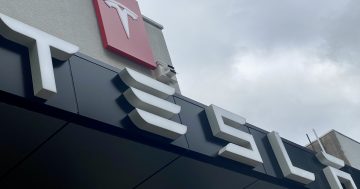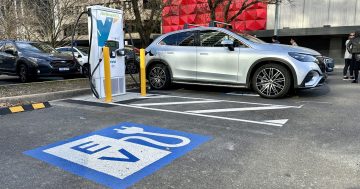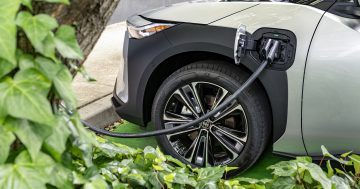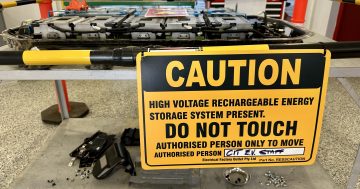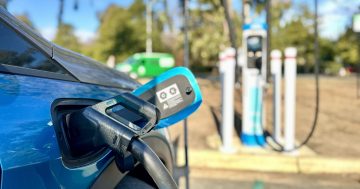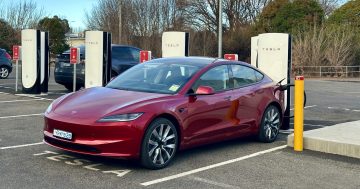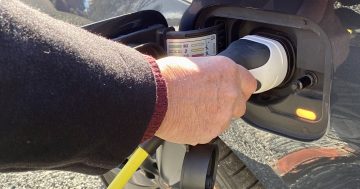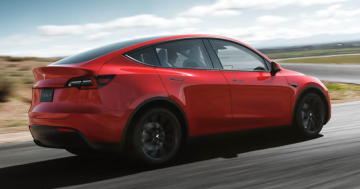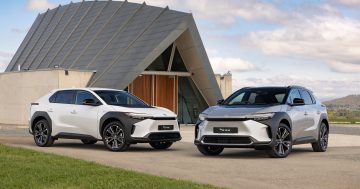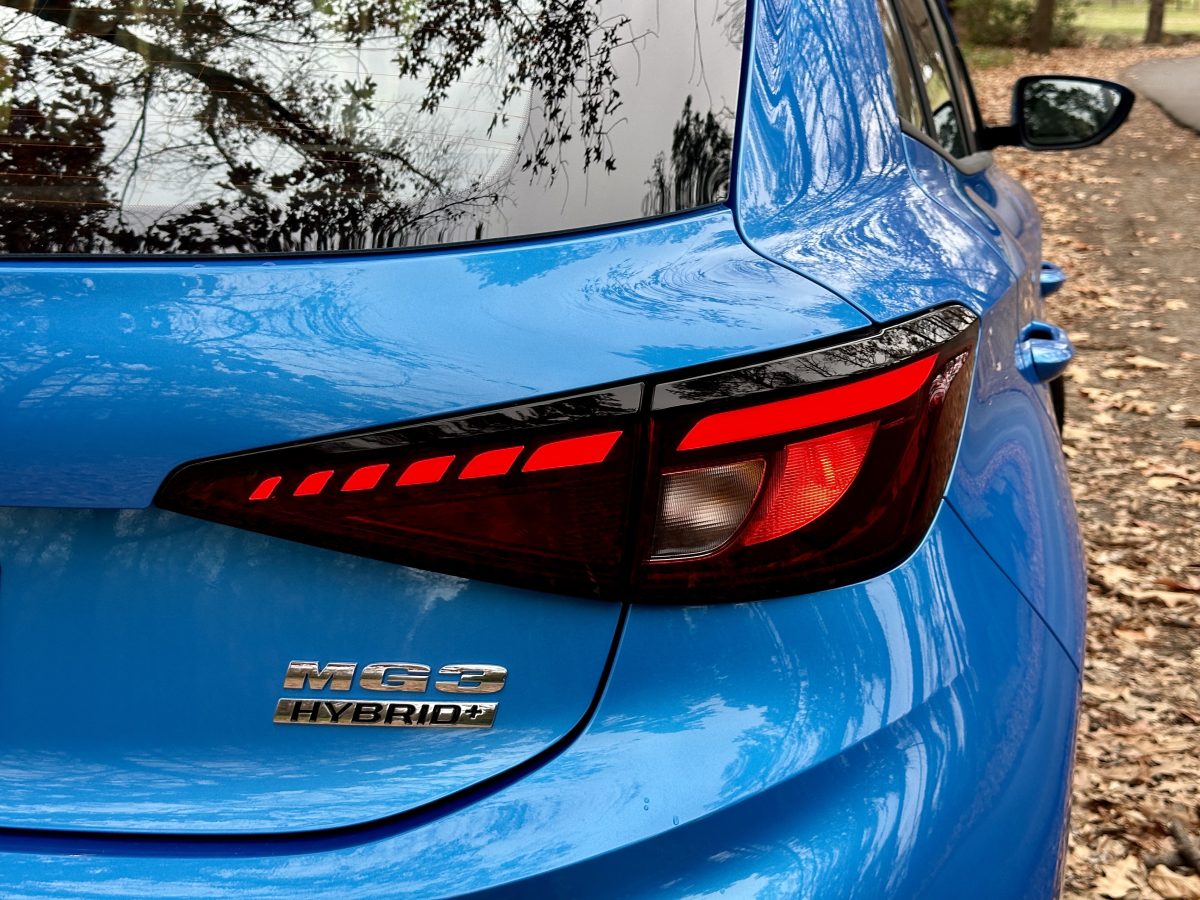
After about 10 years, hybrid batteries are turning up at Electric Vehicles Canberra (EVC) in Hume “completely dead”. Photo: James Coleman.
New research should ease fears about the longevity of electric vehicle batteries and bolster confidence in the used market.
However, the same can’t be said for hybrids, which are said to leave buyers with “stranded assets” in the driveway after about 10 years.
What’s the good news?
A study by Australian auction house Pickles, which trades thousands of vehicles every year, found that EVs with 120,000 km on the clock still had an average battery health of 90.1 per cent.
According to the Australian Bureau of Statistics (ABS), the average Australian car travels 12,100 km per year, so this equates to about 10 years.
Compare this to the eight-year or 160,000 km (whichever comes first) warranties many car brands offer on their EV batteries.
The testing, which has involved more than 250 vehicles supplied to Pickles across Australia’s major capital cities since October 2023, also took into account age and revealed those EVs older than four years still had “at least 93 per cent” of their original battery capacity.
The best performer was Hyundai, whose cars recorded an average battery health of 99.3 per cent over an average distance travelled of 29,237 km and age of 39 months.
BYD’s averages were 98.6 per cent over 15,619 km and 17 months, and Tesla’s at 93.3 per cent over 42,263 km and 27 months.
“This underlines that Pickles is selling used EVs with very healthy batteries, as early data suggest battery health is in line with manufacturer expectations,” Pickles general manager of automotive solutions, Brendon Green, concluded.
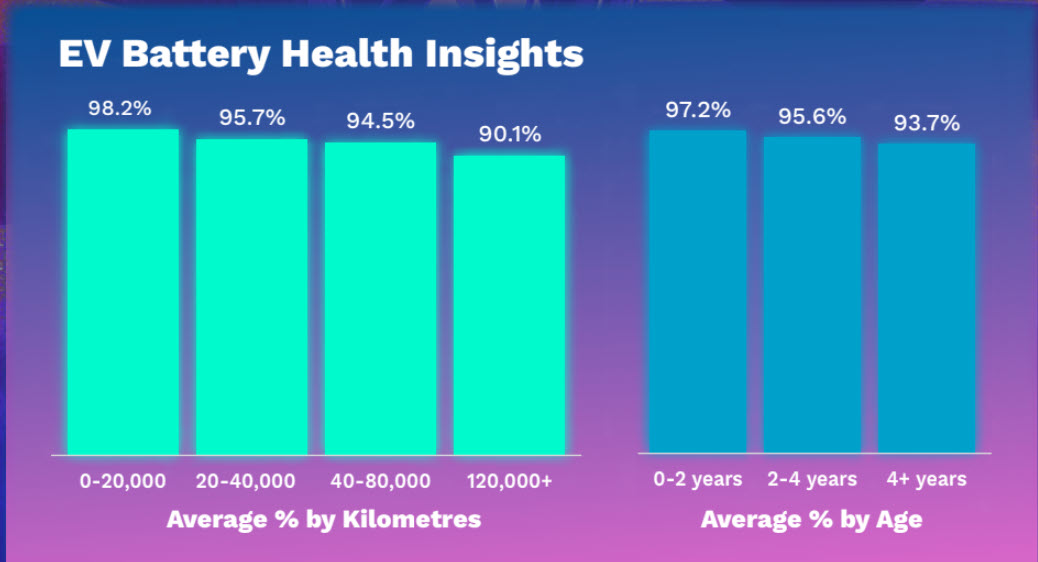
EV battery health insights from Pickles Q4 2024 quarterly report. Photo: Screenshot.
This news comes at a good time for EVs
In its third “EV & Hybrid Vehicle Insights Report” since September, released in January 2025, the Australian Automotive Dealer Association (AADA) has found pro-EV sentiment to be “cooling”.
From a sample of 2000 Australian drivers, it found the “intention to purchase an EV” has remained unchanged from the 39 per cent of respondents in 2022.
Affordability remained the biggest barrier to 55 per cent of respondents, followed by “concerns over EV resale value and repair costs”, both of which have increased since the same time last year.
“The research shows respondents are more likely to consider traditional hybrids (52 per cent) than EVs (39 per cent) or plug-in hybrids (36 per cent), a finding which is backed up by current new car sales data,” AADA CEO James Voortman said.
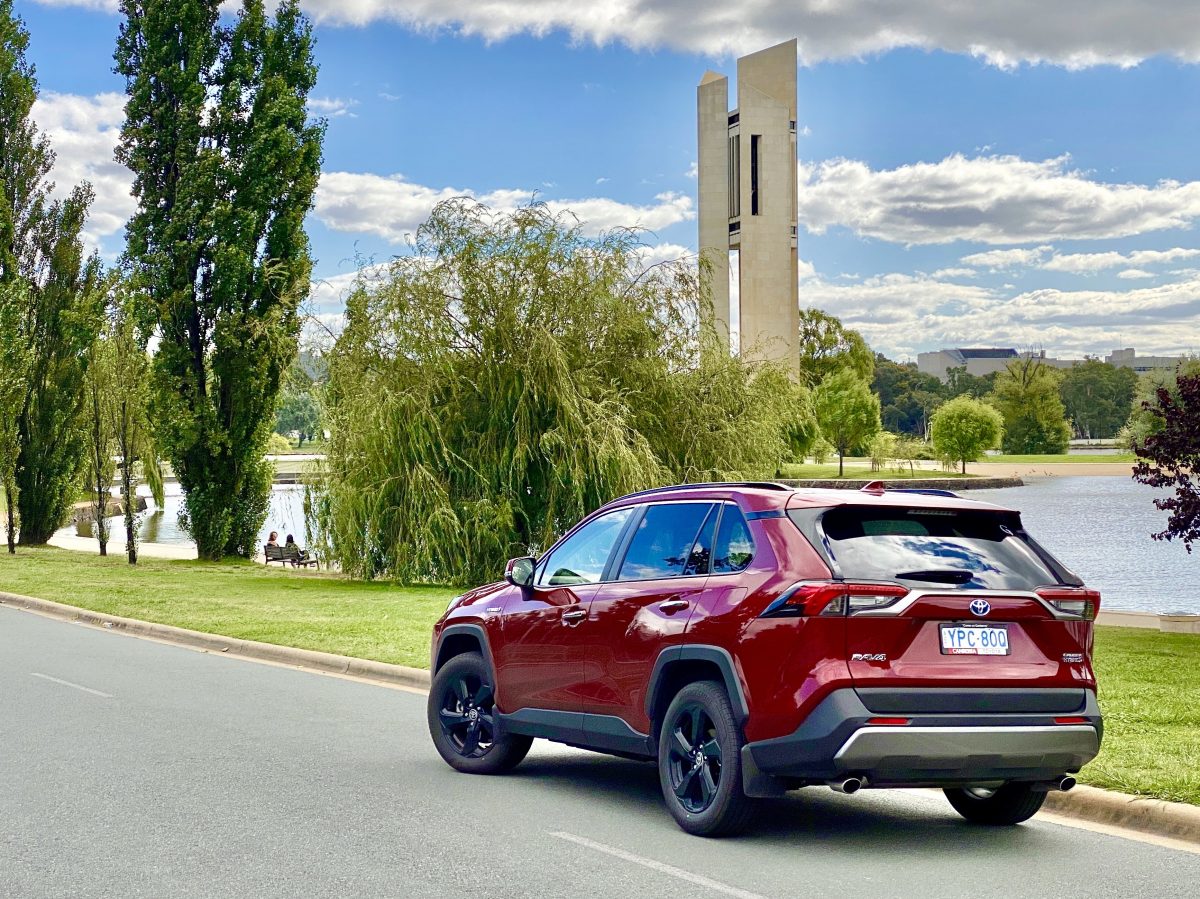
So far, the Toyota RAV4 is shaping up to be 2025’s favourite new car. Photo: James Coleman.
Of the record 1,220,607 new cars bought by Australians last year, sales data from the Federal Chamber of Automotive Industries (FCAI) reveals that 172,696 were hybrids and 23,163 were plug-in hybrids.
The Electric Vehicle Council (EVC) estimates 91,000 new battery EVs were sold in 2024.
The Ford Ranger was the best-selling car overall, with 62,593 sales. It was followed closely by the Toyota RAV4, which has only been available in hybrid form since July 2024, with 58,718 sales.
The RAV4 was also Australia’s top-selling car in January 2025, pipping the Ford Ranger.
AADA also found that “while 58 per cent of respondents consider EVs are better for the environment, this has fallen from 67 per cent since early 2024”.
And the bad news?
The future of EV batteries might be looking up, but it’s decidedly less so for hybrids.
Mark Hemmingsen from Electric Vehicles Canberra (EVC), a Hume-based workshop that offers “expertise in EV charging, repair, customisation and solar installations” has already done a few battery-replacement jobs for Australia’s earliest EV models – the Mitusbishi iMiev and Nissan Leaf.
These cars typically come into his workshop when they’re 15 years old, with batteries down around the 50 per cent health mark and only about 50 km of range.
All up, including labour for the installation, a new 62 kWh battery for a Nissan Leaf costs about $23,000.
“That’s not worth spending on a 2012 car,” Mr Hemmingsen said.
“So what we’ve decided to do is offer Nissan Leaf owners a 62 kWh battery upgrade – and a trade-in price on their old 40 kWh battery, and then we put those second-hand batteries into the older 2012 models and sell them on for a much lower price.”
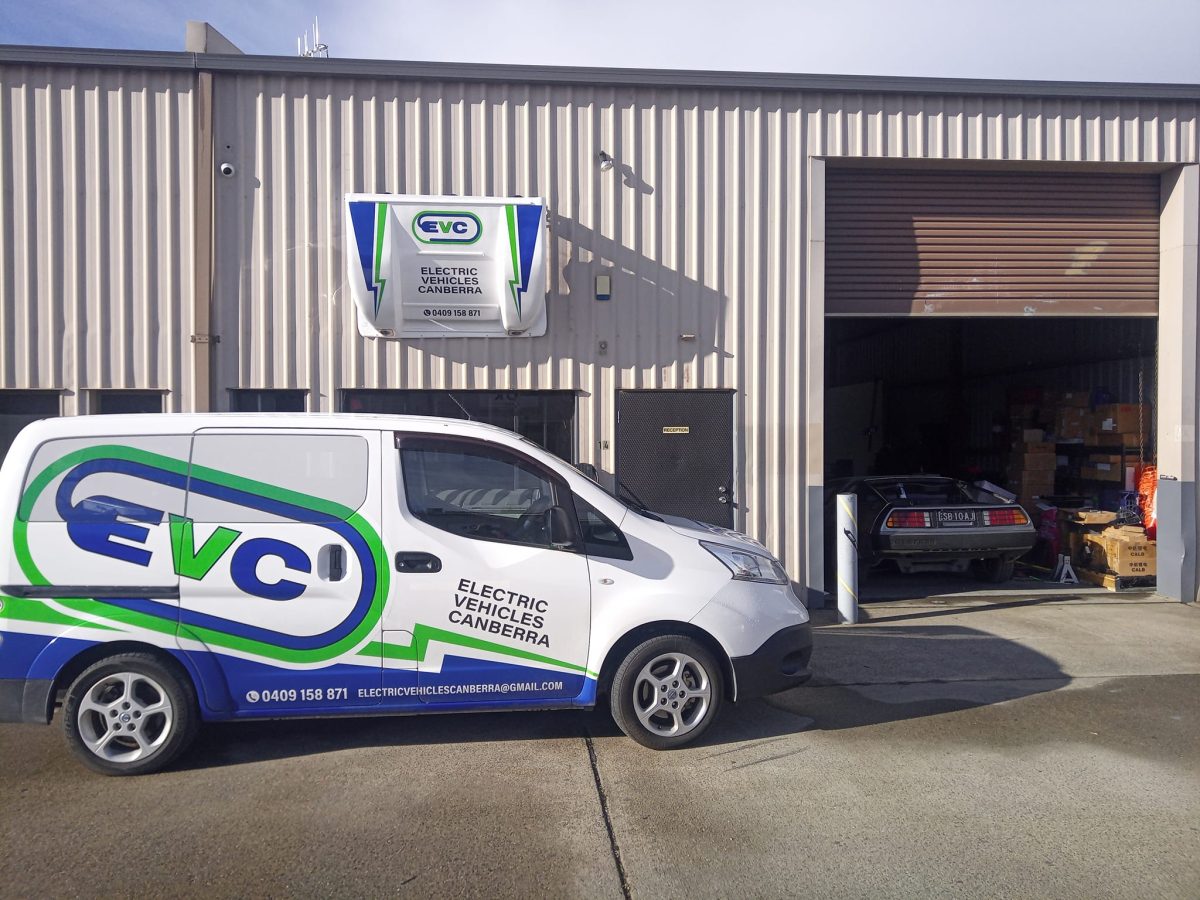
Electric Vehicles Canberra (EVC) is based in Hume. Photo: EVC, Facebook.
But there’s a bit of difference between these and today’s EVs.
“The lifespan of a battery is measured in the number of charging cycles it can go through,” Mr Hemmingsen explained.
“The early Mitsubishis and Nissans didn’t have a big battery – they started with about 150 km of range, which means they’re going through a charging cycle nearly every day.”
Meanwhile, a modern Tesla Model Y, for instance, with a claimed range between 450 and 550 km, might go a week without needing to be charged.
“So over a 10-year period, they end up with a lot better retention of their battery … They’re still going strong.”
However, the smaller batteries inside hybrids and plug-in hybrids are more like those in early EVs, and they can even go through several charging cycles in a day.
“So in the 2012 Mitsubishi Outlander plug-in hybrids, for example, we’re seeing total battery degradation.
“By the time they come to us, those batteries are pretty well dead, and when they’re dead, you’re essentially left with a stranded asset.
“You’ve got a vehicle that can’t be sold because the battery is no good and it can’t be sent to the wreckers because the wreckers won’t take the lithium batteries.”
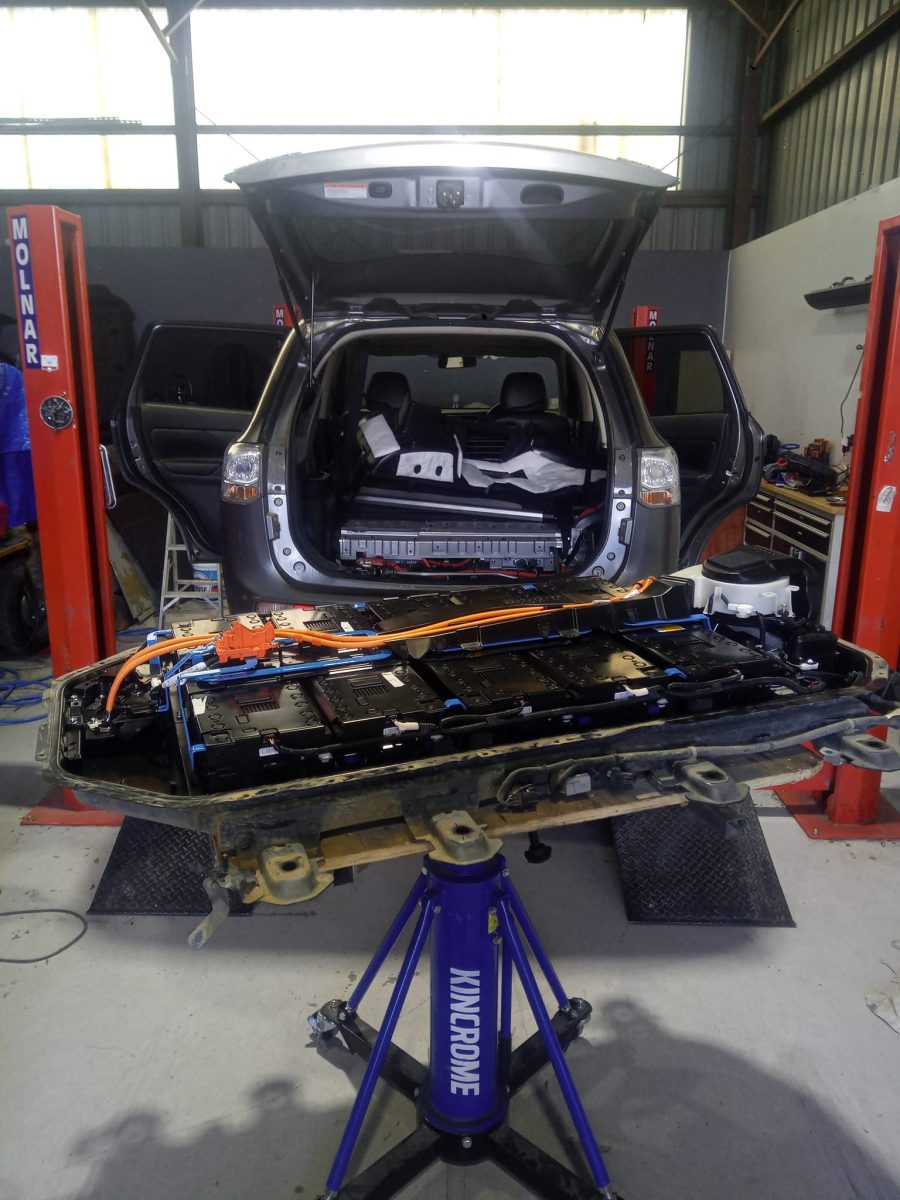
A Mitsubishi Outlander PHEV having its battery replaced at Electric Vehicles Canberra. Photo: EVC, Facebook.
A new lithium-ion hybrid battery can cost between $5000 and $10,000 to install in a Toyota or Honda, while the Mitsubishi ones are about $12,000.
Mr Hemmengsen has been in talks with two companies in Australia that offer battery recycling, but even here, there’s cost. Not only does the battery need to be removed from the car first, but the charge is about $8 per kilogram of battery to recycle it.
For reference, a Toyota hybrid battery weighs about 50 kg, while a full EV’s is upwards of 250 kg.
“Especially because the government has been providing incentives to move to these sort of vehicles, this is going to be the next big negative news story for EV and hybrid technology,” Mr Hemmengsen said.
“We need to have a plan B. We need to create a circular economy where we subsidise the cost of replacing the batteries, or subside the recycling programs.”












